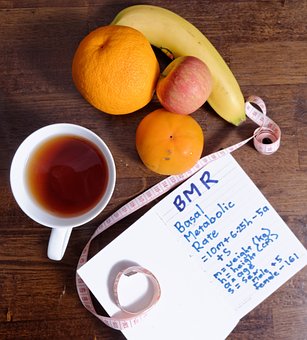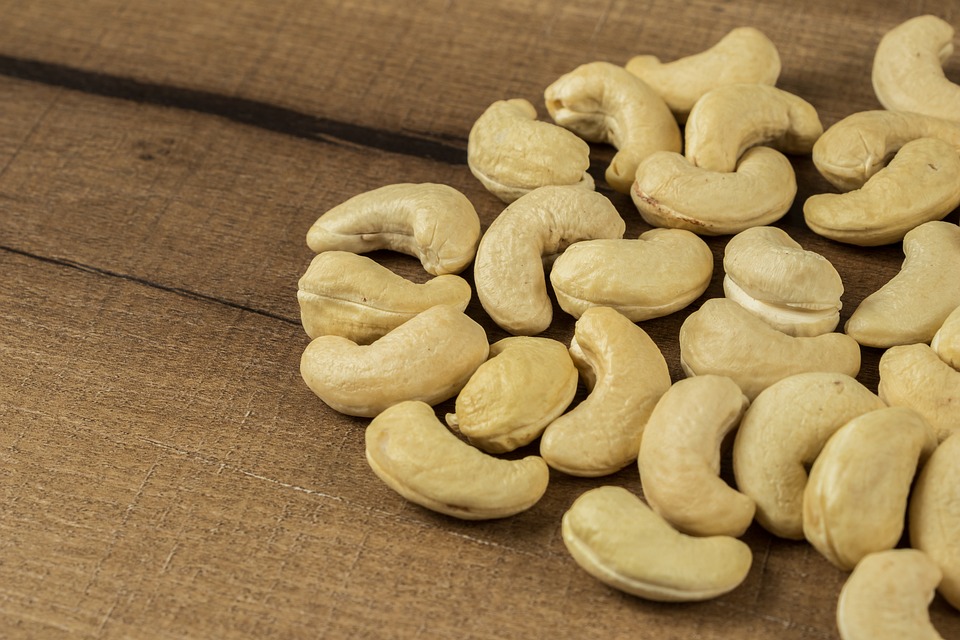
The way you burn calories is solely your own, and there are various elements that decide how quickly your body does this. It is thought by some individuals that their metabolic rate is either high or low, and they often relate it to their body weight.
Metabolism is not necessarily the determiner of one’s body weight, as it is just one factor in how many calories are burned or how much energy can be balanced out. Gain greater knowledge about what metabolism means, how it can fluctuate, and advice on preserving a vigorous metabolic rate.
What is Metabolism?
Metabolism is the intricate set of biochemical reactions that occurs in the body when it breaks down food for energy to keep life going and also allow for physical activities, including exercise and non-exercise tasks. These processes include:
Metabolic Processes
- Breathing
- Digesting food
- Delivery of nutrients to your cells through the blood
- Use of energy by your muscles, nerves, and cells
- Elimination of waste products from your body This number includes your basal metabolic rate (BMR)—the number of calories needed to support essential functions, like breathing and circulating blood—and calories burned during physical activity.
How quickly you consume calories or energy is known as your metabolic rate. The majority of your caloric consumption – between 60 and 75% – is estimated by your basal metabolic rate.
Factors That Affect Metabolism
Each individual has a different metabolic rate, since plenty of elements can affect how rapidly or slowly the body can transform and use energy. Factors such as your age, gender, physique, if you are expecting a baby, whether you have adequate nutrition, and other similar items are taken into consideration. Read more about these factors below.
Age
Metabolism slows as you age. Research has indicated that this can be attributed to the changes in body composition that occur with advancing age.3 Generally, lean mass tends to decrease while fat levels may remain static or even go up. Less calories are burned due to fat than muscle, so your metabolic rate may decrease.
The diminishment of lean mass results in alterations to body composition, a phenomenon that affects people irrespective of their age. Nevertheless, sarcopenia, which is the loss of muscle mass that typically occurs with age, can be a health hazard and can result in an increased amount of fat and visceral fat that can create health issues.
Sex
Males generally have a higher metabolism than females. Studies indicate that this is likely caused by females being able to maximize energy and accumulate fat more productively than males. Additionally, dissimilarities in specific hormones may also have an effect.
Nevertheless, males may have a faster metabolism due to their inclination to have more lean mass, which is equipped to use energy and furthermore hastens the metabolic rate. So, this might mostly be determined by body structure, as opposed to gender.
The total energy output among women is on average approximately 5-10% lower than men’s even when disregarding fat-free mass, which is to a certain extent because of the various physical compositions between the two sexes.
For females particularly, menopause is signified by a difference in hormones which also alters metabolic rate. Once a woman has gone through menopause, her body typically becomes more resistant to insulin, while her levels of estrogen decrease and her amount of androgens circulating in her blood rises. These hormonal changes can alter the metabolism.
Body Composition
Muscle tissue that is not carrying a lot of excess fat will use up more calories than fat deposits, even when your body is not active. Having a greater amount of muscle mass will increase the number of calories burned throughout the day and will heighten your metabolic rate. Lean body mass helps the body become more responsive to insulin, providing protection against metabolic disorders.
People who suffer from obesity may experience changes in their energy expenditure because of inflammation. Additionally, elevated levels of body fat can decrease the metabolism’s usage of glucose and fatty acids for energy. Gaining more muscle mass has been demonstrated to diminish the issue and enhance the body’s metabolic activity.
Body Size (Height)
Your stature can also influence your body’s metabolic rate, but in rather convoluted methods. It appears that individuals of a higher stature have an increased basal metabolic rate (due to their bigger size), however certain findings have revealed that, in comparison to smaller ones, they burn fewer calories per their body weight while ambling. This is a result of walking more efficiently by increasing the length of the strides.
By considering both one’s height and waist size, it is possible to assess the potential risk of metabolic disorders like metabolic syndrome.
Body Temperature
Approximately 40% of the energy spent by the body is devoted to maintaining a consistent body temperature. If you are in an environment with temperatures that are too far from what you’re used to, your body will need to put in additional efforts to adjust. Working harder raises your metabolism.
Folks with obesity generally have a lower body temperature, and some researchers suggest this may have caused their metabolism to slow down and caused them to gain weight in the first place. More research is necessary.
Caffeine or Stimulant Intake
If you have ever had an excess of caffeine, like from consuming lots of coffee or energy drinks, you would have noticed your metabolism temporarily increase. This is due to the fact that stimulants like caffeine can enhance your body’s ability to burn calories. Consuming caffeine will actually cause your metabolism to increase significantly, and the effect will remain for a period of three hours.
When exercising, one can burn more fat due to a higher metabolism rate when taking caffeine. This effect remains for several hours after exercise.
Hormones
There is a possibility for your metabolic rate to go up or down if your body is not producing the necessary hormones from the thyroid. If there is an insufficient amount of hormones being created by the thyroid (hypothyroidism), the rate of metabolism is decreased, leading to an increased likelihood of weight gain. If the thyroid is producing too much hormones, it can often lead to weight loss which is referred to as hyperthyroidism.
The variations in hormones between male and female individuals are relevant here, as well as the alterations in hormones before, during, and after menopause. Hormones influence the way glucose, amino acids, proteins, and fats are used in the body and determine where fat is stored, such as on the hips, thighs, and stomach.
Food Intake
Many individuals will decrease their consumption of calories and the amount of food they eat when attempting to shed pounds. Nevertheless, food must be consumed in order to provide the body with the essential elements necessary for a functional metabolism. Metabolism also increases when food is being digested. This is called the thermic effect of food.
The amount of energy which your body must use in order to process the food you eat is known as the thermic effect of food (TEF). This varies depending on what types of food are being digested. This helps to account for your non-exercise related burning of calories (NEAT), which is included in your total energy expenditure.
Your individual TEF can vary based on multiple factors. As an example, muscle efficiency declines with age, which helps explain why aging has an impact on metabolism.
Here are some pieces of information that can help one comprehend their metabolism, and how it is related to putting on or taking off pounds.
1.) Your metabolism is in every cell in your body.
Many individuals bring up their metabolism as though it were a muscle or some type of body part that they can manipulate or possess conscious control over.
Essentially, your metabolism indicates the set of biochemical processes that exist in each of your cells to process the calories you consume and use them as energy to sustain your life, as explained by Michael Jensen, an investigator who specializes in metabolism and obesity at Mayo Clinic. It was stated that your metabolic rate when inactive can be assessed by “basal” metabolic rate which determines how many calories are used up. He noted that it is the end result of various tissues which have separate requirements and the number of calories essential for them to work correctly.
Around half of the energy consumed when at rest is used by the most significant organs such as the brain, heart, liver, and kidneys, while the remaining half is burned due to fat, the digestive system, and the body’s muscles.
2.) Most of the energy you burn is from your resting metabolism
Your body uses energy every day in three primary forms: 1) the basic metabolic rate — energy consumed to maintain your body’s regular operations while inactive; 2) the energy utilized in the process of digestion (also referred to as the thermic effect of food); and 3) the energy expended in physical action.
As we looked into more deeply in an article, a not widely recognized reality regarding the body is that your energy expenditure at rest makes up a substantial amount of the total energy you burn on a daily basis. Exercising makes up only a small proportion of your overall energy use – between 10 and 30 percent – except if you are an athlete or have a laborious job. Digesting food accounts for about 10 percent.
Most experts agree that the basal metabolic rate makes up 60-80% of the energy people use, according to Alexxai Kravitz, who is a neuroscientist and obesity researcher from the National Institutes of Health.
“It’s not nothing, but it’s not nearly equal to food intake, which accounts for 100 percent of the energy intake of the body,” Kravitz added. “This is why it’s not so surprising that exercise leads to [statistically] significant, but small, changes in weight.”
3.) Metabolism can vary a lot between people, and researchers don’t understand why
It is accurate to say that although two individuals may possess similar dimensions and body composition, their metabolic rates can still vary. One can eat a large amount of food without putting on any pounds, whereas the other needs to track the amount of calories they eat to remain at their current weight.
Will Wong, a researcher and professor at the Johns Hopkins Center for Metabolism and Obesity Research, explained that the reason for this is still a mystery. We are unaware of what regulates a person’s metabolism.
Investigations have revealed certain indicators of the speed of an individual’s metabolic rate. The variables that have an effect on metabolic rate consist of: the relative overall quantity of lean muscle and fat in the body, age, and heredity (despite the fact that specialists have not come up with an explanation for why some family members have quicker or slower metabolic rates).
The gender one belongs to affects the amount of calories burned; therefore, women with the same physical composition and age normally burn fewer calories than males with similar qualities. Jensen further suggested that women may experience an alteration in their metabolism throughout their menstrual cycle; the resting metabolic rate for some females could be up to 10% higher in the last half of the cycle (the luteal phase).
It is not simple to accurately find out your resting metabolic rate (though there are some products available for purchase that can do so, the most precise readings come from research studies that use high-priced equipment such as a metabolic chamber). You may be able to get a general idea of your resting metabolic rate by entering some data into internet calculating tools, such as this one. This will show you the estimated amount of calories that your body should burn in one day. If you consume that amount and your weight remains the same, then it is likely correct.
4.) Another thing that slows down the metabolism: getting older
The change occurs over time, regardless of whether there is an equal amount of fat and muscle mass. When a person reaches the age of 60, their metabolic rate will be lower than when they were 20, meaning they use up less energy while not active.
Jensen pointed out that this gradual decrease begins even at 18 years of age, however the exact cause of such a metabolic phenomenon is still undetermined. What is the reason for your energy levels to decrease even when everything else remains the same as you get older? It is one of the biggest unsolved puzzles.
5.) You can’t really speed your metabolism up for weight loss
The idea of increasing metabolic rate and burning fat by exercising more, adjusting your diet and/or consuming dietary supplements is getting a lot of attention lately. But it’s a metabolism myth.
Jensen explained that although some foods such as coffee, chili, and other spices might increase the basal metabolic rate in a minuscule amount and for a short period of time, it would not have any effect on your body size.
Building more muscles, however, can be marginally more helpful. This is the reason: Your resting metabolic rate is affected by the amount of muscle mass on your body. At any given mass, the greater your muscle mass and the less bodily fat, the higher your metabolism. Fat requires much less energy to maintain itself when compared to muscle while when not active. This can be seen in the illustration that is provided in part one.
The conclusion being that if you strengthen your muscles and decrease your body fat, your basal metabolic rate will increase and you’ll burn calories rapidly.
However, Michael Rosenbaum, a professor and investigator at Columbia University specializing in weight loss and metabolism, cautioned that there is a clause: “Having additional muscle raises your metabolism and causes it to burn fuel faster.” It isn’t enough just to build more muscle and increase your metabolism – you must resist the natural urge to eat more just because your metabolism is elevated.
Jensen commented that it can be hard for people to carry out the exercise necessary to maintain the muscle mass they acquired. “For most people, it’s kind of impractical,” he added.
He remarked in general, that one does not have a great deal of power over the base metabolic rate. The power usually stays relatively limited, and unfortunately, it usually works against us.
Conclusion
Your metabolism will change slightly from day to day. If you are able to form a habit of upholding and preserving a sound metabolism, it will become easier to accomplish weight loss and keeping that weight off over an extended period of time. It is a good idea to discuss your weight loss goals and worries with your medical practitioner.














